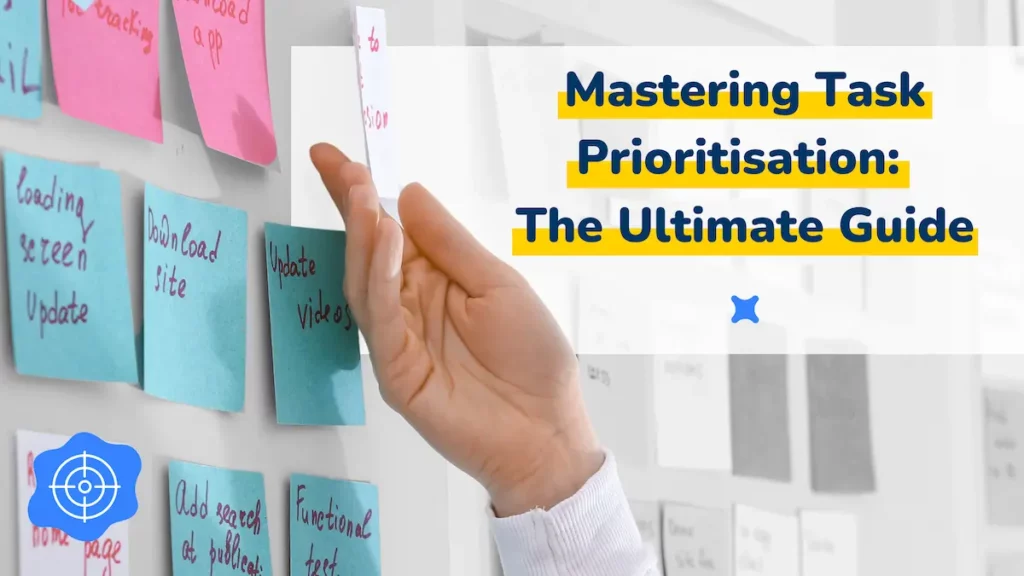Are You Overusing Logic at Work?
Why Even the Smartest People Sometimes Get Stuck
You’ve got the numbers. You’ve got the evidence. You’ve walked your team through the logic step by step, made the rational case, maybe even backed it up with a slide or two.
And still the process gains no traction:
- You find yourself repeating the same points.
- Your proposals get stuck in endless feedback loops.
- The team agrees… but doesn’t get moving.
- You’re solving problems, but progress feels flat.
- You’re making decisions, but they don’t seem to unlock anything new.
This kind of stuckness doesn’t always come from poor thinking.
In fact, it often comes from thinking that’s too structured, too linear, too reliant on logic.
It sounds counterintuitive, especially in professional settings where clarity, evidence, and step-by-step thinking are praised, but sometimes logic becomes the very thing that blocks momentum.
And the more experienced you are, the easier it is to fall into this trap without noticing.
Are You Leaning Too Hard on Logic?
Overusing logic doesn’t mean you’re wrong. It means you’ve become so anchored in the “rational next step” that you’ve stopped questioning the bigger picture.
Keep your eyes open for a few signals that might sound familiar:
- You find it hard to act without a clear justification
- You’re constantly gathering more data, but not making more progress
- You second-guess ideas unless they follow a proven model
- You avoid creative risks because they feel too vague or “fluffy”
- You feel frustration when others “don’t get” the logic—even though it’s sound
- You only feel safe when things can be clearly explained
If this resonates, you’re not alone. Most professionals are trained – implicitly or explicitly – to treat logical reasoning as the highest form of intelligence. It’s rewarded in school, in job interviews, in performance reviews. But no one tells you where logic stops helping… and starts hiding the real opportunity.
The Career Costs of Being Too Rational
When logic is overused, it starts limiting your thinking without you even realising it. And in today’s workplace, where adaptability, originality, and speed of insight matter more than ever, that limitation carries a cost.
You might find yourself delivering solid, sensible work that no one’s excited about. Or holding back on new ideas because you can’t “prove” they’ll work. You might miss out on unexpected opportunities because they don’t fit into your current strategy. You become efficient, but not impactful.
Professionally, this can lead to:
- Stalled influence – you’re heard, but not followed
- Slow decision-making – especially when the problem doesn’t have a clear precedent
- Missed innovation moments – where a bit of playful thinking could have led to a breakthrough
- Reduced confidence in constantly changing contexts – feeling lost when things stop following the rules
In the long run, overreliance on logic can make your career feel safe but stagnant. You deliver, but you don’t surprise. You manage, but you don’t inspire. You get things done, but you don’t get noticed for how you think.
What’s Missing? Usually, It’s Lateral Thinking.
When logic runs out of road, lateral thinking steps in.
Lateral thinking is your ability to shift perspective, challenge the frame, and see what no one else is looking for. It’s not illogical, it’s just not bound to the step-by-step. It asks different questions. It wonders what else could be true. It creates space where logic has drawn a line.
If logic says “here’s how to do it right,” lateral thinking says “what if this isn’t the thing to do at all?”
The best thinkers and the top professionals know how to switch between the two. They don’t abandon logic, they expand it: they use lateral thinking to unlock new directions, and logic to choose the best one.
When you integrate the two, something shifts:
- You stop repeating strategies that no longer work
- You find new energy in solving familiar problems
- You generate options others miss entirely
- You become more comfortable navigating ambiguity, not just controlling it
- Your communication becomes sharper, because you’re not just presenting information, you’re changing how others see it
Combined with critical thinking, lateral thinking goes beyond being a soft skill and becomes a strategic edge.
Thinking Forward
Clear, critical thinking is vital. But it only becomes powerful when you pair it with the ability to challenge the frame you’re working in.
Next time you feel stuck, ask yourself:
- Am I solving the right problem, or just the visible one?
- What would someone outside my field notice here?
- What assumptions am I taking for granted?
- What would I do if I didn’t have to explain it straight away?
These aren’t magic questions. But they’ll help you move from “What’s the right answer?” to “What’s a better question?” and that shift alone can change everything.
🧠 Want to find out which thinking habits are helping or holding you back at work?
Take the Inner Genius Superpower Quiz to discover your cognitive strengths.
It only takes 5 minutes. But it could change how you lead, learn, and make decisions, starting today.







